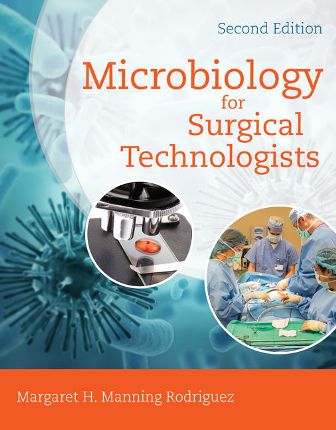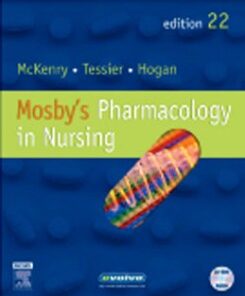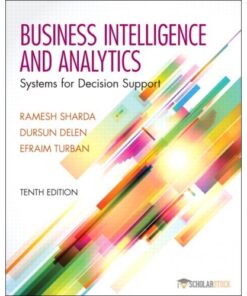Test Bank for Microbiology for Surgical Technologists, 2nd Edition, Margaret Rodriguez
$35.00
Test Bank for Microbiology for Surgical Technologists, 2nd Edition, Margaret Rodriguez
Test Bank for Microbiology for Surgical Technologists, 2nd Edition, Margaret Rodriguez
Table of Contents
1. INTRODUCTION TO MICROBIOLOGY.
Microbiology and Surgical Technology. Early Pioneers of Microbiology. The Golden Age of Microbiology. Breaking the Chain of Disease Transmission.
2. THE SCIENCE OF MICROBIOLOGY.
What is Microbiology? Overview of Microbes. Taxonomy. Nomenclature.
3. THE MICROBIOLOGY LABORATORY.
Microbiology Lab Personnel. Introduction to the Microscope. Units of Measure. Types of Microscopes. Laboratory Staining Methods. Culture Media. Serology. Specialized Laboratory Analyses.
4. THE PROKARYOTES.
Two Domains: Archaea and Bacteria. Anatomy of a Prokaryote.
5. THE EUKARYOTES.
Empire: Cellular. Domain: Eukarya. Microbial Relationships. Eukaryotic Microbes.
6. MICROBIAL VIABILITY AND GROWTH.
Requirements for Microbial Viability. Microbial Growth.
7. MICROBIAL GENETICS AND MUTATIONS.
Basics of Genetics. Bacterial Genetic Exchange. Genetic Mutations
8. THE EMPIRE OF VIRUSES.
Basic Virology. Common Viruses. Viroids. Prion Diseases.
9. MICROBIAL DISEASE TRANSMISSION.
Epidemiology. Pathogens.
10. PARASITES AND VECTORS.
Overview of Parasitology. Types of Human Parasites. Vectors. Host-Parasite Relationships. Survival Mechanisms. Parasitic Disease Transmission. Neglected Tropical Diseases. Neglected Parasitic Infections in the US.
11. MYCOLOGY.
Overview of Mycology. Characteristics of Fungi. Opportunistic Fungal Infections. Characteristics of Yeasts. Antifungal Resistance.
12. GRAM-POSITIVE COCCI.
Focus Groups. Staphylococci. Staphylococcal Diseases. Streptococci. Streptococcal Pathogens and Diseases. Viridans Group Streptococci. Enterococci.
13. GRAM-POSITIVE BACILLI.
Overview of Bacilli. Bacillus Anthracis. Bacillus Cereus. Listeria Species. Lactobacillus. Clostridium Species. Clostridium Tetani. Clostridium Difficile.
14. ACTINOBACTERIA.
Class: Actinobacteria. Actinomyces. Corynebacterium Species. Mycobacterium Species. Nocardia. Streptomyces.
15. GRAM-NEGATIVE COCCI AND SPIROCHETES.
Neisseriaceae Family. Neisseria. Moraxella. Spirochetes. Treponema. Borrelia. Leptospira.
16. GRAM-NEGATIVE BACILLI AND COCCOBACILLI.
Phylum: Proteobacteria. Brucellaceae. Kingella. Chromobacterium. Alcaligenaceae. Enterobacteriaceae. Moraxellaceae. Pasteurellaceae. Vibrionaceae. Aeromonadaceae. Pseudomonadaceae. Campylobacteraceae. Helicobacteraceae. Other Gram-Negative Pathogens.
17. DISEASES OF THE CIRCULATORY AND CENTRAL NERVOUS SYSTEMS.
Hematology and Serology. Transmission of Infections from Donated Blood Products. Circulatory System Infections. Blood-Brain Barrier. Infections of the Central Nervous System.
18. DISEASES OF THE SKIN AND INTERNAL TISSUES.
The Integumentary System. Indigenous Microbiota of the Skin. Bacterial Skin Infections. Fungal Skin Infections. Viral Skin Infections. Vector-Borne Skin Infections. Infections of Internal Tissues.
19. DISEASES OF THE GASTROINTESTINAL AND GENITOURINARY SYSTEMS.
The Gastrointestinal System. Diseases of the Gastrointestinal System. Diseases of the Genitourinary System. Types of Urinary Tract Infections.
20. DISEASES OF THE EYES, EARS, AND RESPIRATORY SYSTEM.
Diseases Involving the Eyes, Ears, Nose, and Sinuses. The Respiratory System. Viral Infections of the Respiratory System. Fungal Infections of the Respiratory System. Pneumonia.
21. CONTROL OF MICROBIAL GROWTH.
Control of Microbial Growth. The Three Lines of Defense. Components of the Immune System. Hypersensitivity Reactions. Herd Immunity. Behavioral Factors. Prevention of Disease Transmission in the Surgical Environment of Care.
22. EMERGING, RECURRING, AND REAPPEARING DISEASES.
Microbes in the Media. Emerging Viral Diseases. Recurring Diseases. Reappearing Diseases.












Reviews
There are no reviews yet.